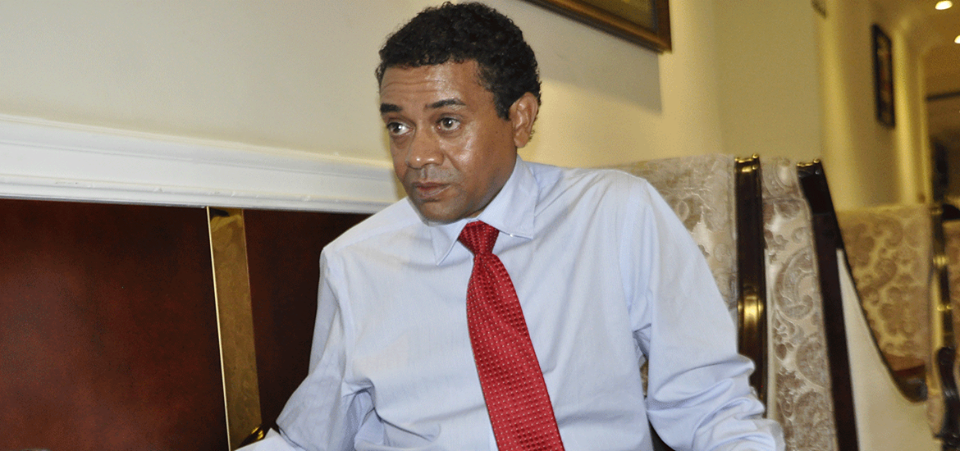
Various countries in the world and Africa have declared State of Emergency due to an outbreak of the Coronavirus pandemic. As a result, many closed their doors, airports, schools, resorts, companies and more others discontinued their service provision. The pandemic is not only a health problem; it is seriously damaging the global economy.
Various economists suggest that there is no area remains unaffected by the pandemic except vary in size and severity. However, it has also been observed that tourism, hotels, and airports, which are the most affected, are suffering. It is easy to imagine that the export sector will share the problem.
It becomes difficult to predict the economic risk it induces. Despite the impact of the recession, it has been reported that some countries are lifting their bans and opening their doors that sparks hope.
The macro economist Dr. Eyob Tesfaye, who spoke to Addis Zemen Daily on the issue, pointed out that it is appropriate for the government to continue to guide the economy. But if the problem persists, he point out that it will be difficult for the Ethiopian economy and recommend a flexible monetary policy.
Dr. Eyob’s view on efforts by the government to tackle the financial crisis and restore the economy to a stable state is positive.
He said that the strategy the Government of Ethiopia is following to prevent COVID-19 pandemic outbreaks is suitable. This means that there are steps it has taken in monetary policy. Five billion Birr has been given to private banks. This will help the banks offer more loans and keep companies not to be closed. The government has encouraged banks tracing pressure of COVID-19 to create a favorable environment for borrowers to extend their repayment period and cancel some of their interest. This is a big step.
The efforts made at the international level by the Ethiopian Prime Minister Abiy Ahmed (PhD) the international lending countries to extend debt repayment of African countries, give additional finance and support in foreign currency are astounding.
A major step in the sector has been taken to prevent the breakdown of supply of goods. Government is working with its full power to avoid inflation. It is working properly so that any offer is not interrupted. In the future, however, nothing is known about COVID-19. Once the adverse effects are known, further policy measures should be taken. It is good to the government keep up in control of the economy. But if the problem persists, it will be difficult for the Ethiopian economy. A relaxed monetary policy should be applied.
Regarding the policy measures should be taken more seriously by the government
after the effects of the Corona pandemic, Dr. Eyob said: “The general monetary policy that the government followed was strict. There must be more budgets, more credit and more expenses. This means that there must be costs to investment in order to enable the existence of work activities. As the growth of most private sectors has close attachment with government, there has to be more investment. The supply of credit should also be expanded. It needs to revisit the loan policy and make revision.”
Regarding economic sectors such as tourism, restaurant and communication which are badly affected and the large workforce moving them forward, Dr. Eyob commented that the service sector is linked to foreign economic activity. If the problem escalates, the government cannot save all economic actors. But as the problem is a common one, it should also have share their problems and help them avoid hurting them by extending and canceling their debt, looking at their taxes, and canceling cumulated payments such as of electricity and water.
While commenting on what should be done to the export sector which is a bit promising in the current crisis to support the other
sectors in the future, Dr. Eyob said: “The export sector is related to foreign relations, as I mentioned. But now there is a little hope in some countries. They are opening their doors.
“If this continues, the export sector will be restored; especially the flower sector can be restored by June and July 2020. As I said, the government should provide the necessary support to keep exporters inf the market and their business. Hopeful situation appears: It is anticipated that some European countries will return. However, the damage is not easy, especially in the flower sector. Therefore, it is appropriate to keep them in contact with the banks, cancel out some of their debts and make the necessary loan provision.”
There is widespread demand in various countries particularly in food supply due to the COVID- 19 pandemic. On the other hand, Ethiopia is producing its major export the agricultural products. Many believe that this export market system needs to be scrutinized.
As to the economist, not only the agricultural sector or the export sector, but the entire economy needs a new perspective. It is important to learn from the current crisis. The nation’s efforts to achieve food self-sufficiency should continue intensely. Particularly, the problem of supply, especially in the sectors of export, agriculture, and so on should be addressed.
On the other side, government should continue to expand its wheat production in the lowlands. The objective of the function is to address the supply problem and to make the country self-sufficient in food production. Export should still be high.
In addition, the domestic economy should not be limited, even if the foreign economy is constrained. Many products can be produced in the country and should be focused on imported proxy products. For example, textile companies are producing by importing cotton. This raw material supply has been disrupted by the current Corona pandemic. This should be changed Consider the fact that cotton is widely produced locally. Breweries should fully utilize domestic production. Economic surveillance should change in such a way. In the event of such a disaster, the economy should be strengthened and a recovery plan should be developed.
Regarding the prediction at the beginning of current fiscal year that Ethiopia’s economy will grow by nine percent without this problem and it is now estimated that it will grow from five percent to six percent, Dr. Eyob said: “It is a miracle if it can be grown even five per cent in the global context. All of the global economic growth can be raised in 2021. And it is a big chance for the Ethiopian economy if it is raised by five percent over the next three months with hoping the problem will over soon.”
The Ethiopian Herald May 5/2020
BY BACHA ZEWDIE




